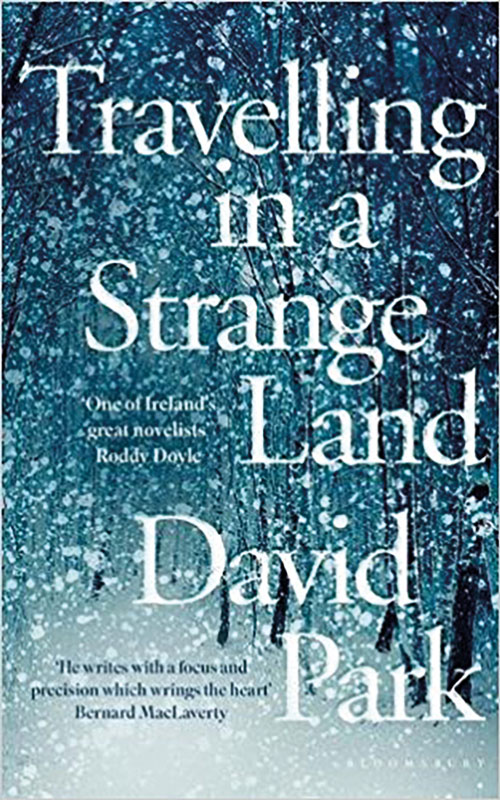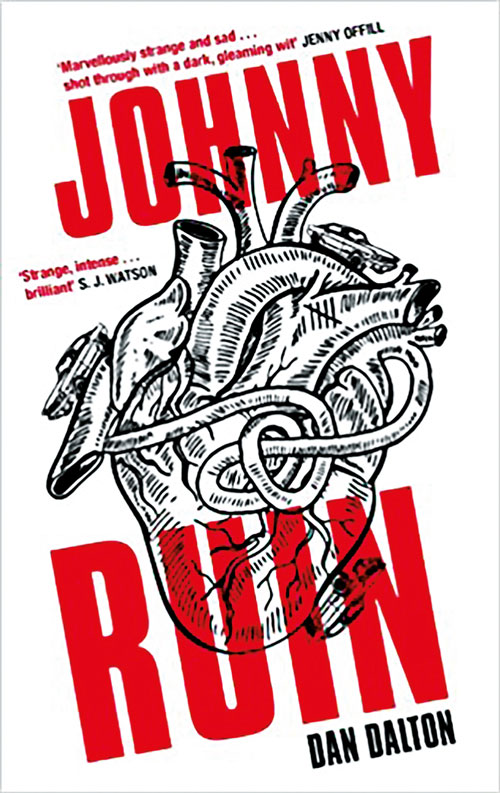Snow is a recurring leitmotif in Irish literature. Its ability to turn the familiar into foreign, to beautify the ugly and silence the noisy, is a gift to all poets; but as Northern Irish writer David Park points out in his new novel, Travelling in a Strange Land, it is particularly effective when writing about a newly branded city with a dark past. Snow in Belfast becomes a kind of dream-catching fairy dust in Park’s tale, creating a near mythical landscape where memory is as crucial as a sat nav, though far less comforting.

The situation however, is a standard human one. Tom’s son is stranded, sick, in Sunderland, and it’s his dad’s job is to pick him up and bring him home to Belfast for Christmas. Tom stocks the car with flasks, a torch, a spade, a sleeping bag – the average survival kit for a sole driver undertaking a long drive over treacherous terrain. ‘We have to get him home’ his wife repeats, over and over. There is an opportunity for paternal heroism in his mission.
Belfast is a palimpsest rich with allegory
So off we go, keeping Tom company as his brief encounters with fellow travellers are increasingly punctuated with tugging old memories – family holidays, audits of his children’s messy bedrooms, the day he met his wife – which spark fleeting crescendos of optimism and rushes of love.
For the most part though, Tom’s mood is one of guilt, grief and fear. Park slowly reveals the details of the harrowing event which has thrown his once happy family off course, but from early on there’s an inevitability about what we’re about to learn, and how the story will end. Perhaps that’s the point, to signpost the destination so that what becomes interesting is the emotional diversions. It doesn’t matter that we know what’s going to happen; it’s the act of retracing the steps, the pain of wondering what might have changed the outcome, which haunts Tom, and the reader as well.
The prose is strewn with metaphors and allusions, perhaps too many for the novel to entirely escape accusations of occasionally laying it on a bit thick. It’s also true however that Belfast is a palimpsest rich with allegory. The water waiting to reclaim the land, the re-fashioned murals, the grimy, terraced ‘Holy Land’ – these might seem like over-stretched contrivances to the uninitiated but they’re all there, for real, in the day to day of that unique little city.
Tom regularly reminds us he has no religious faith, but his inner monologue reads increasingly like a redemptive prayer, a plea for help in figuring out how to keep things close, and let things go. That this father and son odyssey should come to rest under an angel’s wings is just one of its great emotional and artistic rewards. This is possibly Park’s best yet, and shines like a beacon among the host of exceptional literature to come out of Ireland in recent years.










